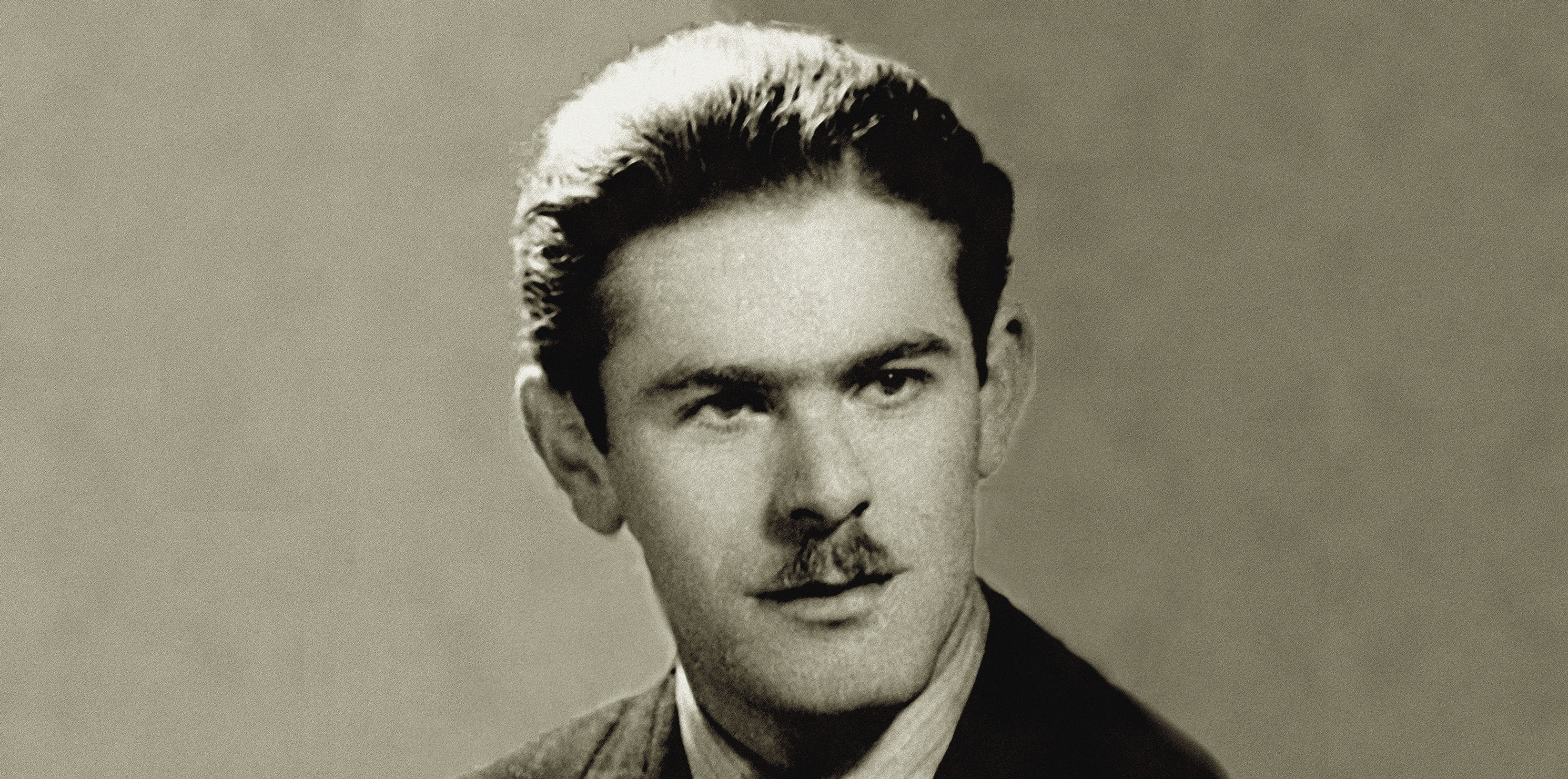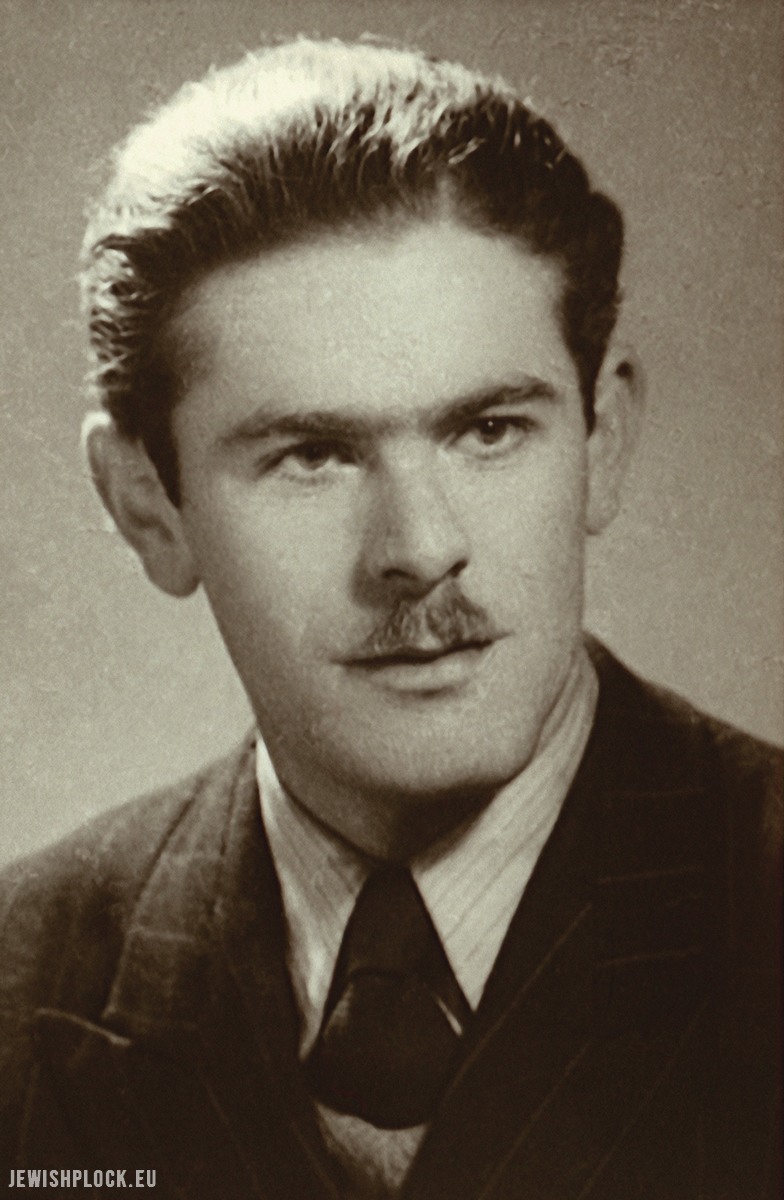Adam Neuman-Nowicki

Adam Neuman-Nowicki was born on September 23, 1925 in Płock, as the son of Mosze Szlomo Neuman (1893-1942, son of Jehuda Lejb and Leja nee Niedźwiedz) and Frymeta nee Goldkind (1894-1942, daughter of Abram and Tema). His family was part of the active, assimilated group of the Płock Jewish community. Mosze Szlomo Neuman was a bookkeeper in the Margulies agricultural machinery factory, then he ran the state lottery at 34 Sienkiewicza Street, later at 3 Kolegialna Street in Rajch’s house.
Adam was born in a tenement house at 33 Sienkiewicza Street (currently number 51) in the house which belonged to the Pszenica family. He spent the first years of his childhood there. As a child he took private lessons at home (his teacher was Jechiel Meir Krawec), then he attended the 7-class public school, later – the private school of A. Waśniewska and H. Szczycińska at 20 Kolegialna Street. At the age of 10 he joined the Zionist organization Akiba. He was also an active member of the sports club Makabi – an avid swimmer, canoeist, gymnast, skater, cyclist and athlete.
My grandparents, orthodox Jews (I remember them with long gray beards), scrupulous about all religious regulations, had serious functions in the synagogue. I do not remember much about my grandfather Lejb Nejman, because he moved to Warsaw with my grandmother. I only know from stories that while he was still living in Płock, he was buying grain from nearby farmers. He was a tall, handsome man with a well-trimmed beard, always neatly dressed. He was famous for a very loud voice, which was typical for the family, because also uncle Benjamin and aunt Estera sang beautifully. So my grandfather, as well as my uncle later on, often performed as cantors.
I know even less about grandparents from the side of my mum, of the Goldkind family. I remember that my grandfather worked as a furrier and in his apartment at Szeroka Street, filled with the scent of leather, there were always furs stretched on large boards. Grandmother Goldkind was continuously ill and in the last years of her life she was bedridden. It was thought that was because of her old age, today I guess she was suffering from Alzheimer’s.
The grandparents on both sides were pious Jews, meticulously adhering to all religious laws and regulations. However, my parents, as well as the majority of assimilated Płock Jewry, can be called traditional Jews. They modified religious rules, adapting them to modern living conditions; my father wore neither a kippah nor a beard. At home, Polish was spoken except in situations, where the parents did not want me and my brother to understand their conversation. Nevertheless, they respected old customs. They ran a kosher kitchen and celebrated Jewish holidays, during which they did not work and did not send us to school.
My mother was a very pretty woman, but she was not the strongest. She was a typical Jewish wife and mother. She took care of our home and raised two sons. A few years before the war, hard times came for our family and my mother had to get involved in paid work. She started by renting furnished rooms in our flat at 4 Kolegialna Street, where we moved when I was 7-8 years old. This tenement house belonged to the Płońskier family.
Our “hotel” started its activity on a small scale, but over time it has developed and doubled the number of rooms. Our guests were mostly merchants or transporters i.e. representatives of various companies who came to Płock to present their products. The secret of our success was, first of all, the cleanliness of the rooms, change of bedding each time a guest left, pleasant service and very tasty meals. Our guests usually dined with us, although some came only for dinners. Among them, I remember Klinkowsztejn and Mr. Szylit. Mom personally took care of cooking, having a chef and a maid to clean up. In my memory, unusual visitors stuck to me. It was the Jewish theater groups of Ida Kamińska, and on another occassion – of Lola Folman…
From the large family of Adam Neuman-Nowicki, only he and his brother Henryk survived World War II. Adam described his experiences in a book entitled “Struggle for Life”, which was published in Poland in 2008.
In 1946, Adam Neuman-Nowicki got married to Ilona Rappel (1919-1997), daughter of Adolf and Gustawa Szechtman. Her family came from Płock. In 1947 their daughter Ania was born. Adam graduated from the evening high school, and after moving to Warsaw in 1951 and taking the matura exam – also from the Central School of Planning and Statistics (course: economics). At the same time, he learned the X-ray techniques. In 1957 he immigrated to Israel with his family. In 1963 he left for the United States. For 24 years he worked in a hospital in New York, where he was promoted quickly and became head of the radiology department. In 1987, due to his health, he retired and moved to Florida after a few years.
Adam’s daughter – Ania, graduated from Brooklyn College in New York, then from dentistry at the University of Boston. After she got married, she settled in Israel, where she practiced as a children’s dentist. Her husband Yoram Alperin was a member of the Israeli Philharmonic in Tel Aviv. Grandson Doron also became a musician (he graduated from the Music Academy in Tel Aviv, then in Salzburg). Granddaughter Sigal studied media and management.
In 1997, Ilonka Neuman died during a heart surgery. The following year, Adam married Paula Singer. Paula’s father – Natan Gutman, came from Płock as well.
Adam’s brother – Henryk, graduated from the University of Wroclaw, then he was appointed the laboratory manager in Warsaw, later the head of the department of materials research at the Institute of Aviation in Okęcie. After six years, he moved to the Institute of Fundamental Technological Research of the Polish Academy of Sciences for the position of assistant professor. In 1959 he was appointed the director of the Isotope Applications Team in the office of the government’s representative for nuclear energy, where he worked until 1968. He represented Poland at many international scientific conferences. In 1969 he emigrated with his family to the United States. His wife Halina nee Bromberger during the war took an active part in the underground fight against Nazi Germany. She was wounded during the Warsaw Uprising. In the States, they settled in Austin, Texas. Henryk Neuman received the position of a senior scientist in the nuclear reactor laboratory of the university there. After 15 years of work, he retired. During his academic career he wrote and translated three books and published over thirty works in scientific journals of various countries.
Text based on the book by Adam Neuman-Nowicki “Struggle for life”, Ciechocinek 2008.
















